REAL’s Resilience in Protracted Crises Discussion Series
A series of three online events based on our recent Resilience Rapid Learning Series and lessons learned for building resilience in protracted crises and conflict-affected settings
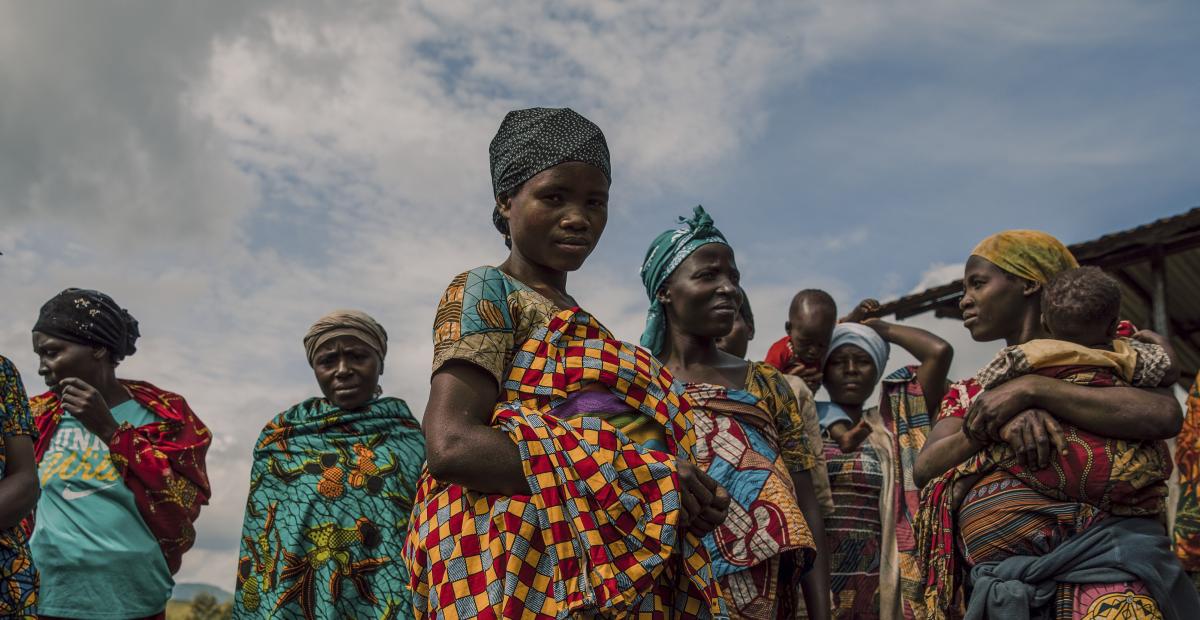
About
REAL is organizing a series of three online events based on our recent Resilience Rapid Learning Series and lessons learned for building resilience in protracted crises and conflict-affected settings. The series examines promising program approaches in Niger, the Democratic Republic of the Congo (DRC), and Northeast Nigeria. These discussions will showcase emerging findings from the case studies on how to work differently at the intersection of peacebuilding, humanitarian aid, and development and how to incorporate resilience perspectives in program design and implementation.
This series was inspired by a Conflict and Resilience Roundtable held in June 2020, organized by the REAL Award and the USAID Center for Resilience, and framed by Mercy Corps’ paper, Towards Resilience: Advancing Collective Impact in Protracted Crises. The paper calls for humanitarian, peacebuilding, and development action to align behind a resilience agenda to protect current and future well-being in conflict settings.
To prime the series, REAL convened a joint USAID/FCDO webinar to present and discuss findings from a recent evidence review of livelihoods and markets in protracted conflict conducted under the Supporting Pastoralism and Agriculture in Recurrent and Protracted Crises (SPARC) Award. Highlights included: the need for longer-term thinking in protracted crises, the importance of individuals’ agency during crises, the focus on cash over aid in-kind, and how donors can engage implementers as equal partners for maximum flexibility in programming.
Risk Analysis for Resilience Programming in Protracted Crises
Nov. 17, 2021 - 8:30 AM – 10:00 AM EST
View Presentation and Recording here
The first discussion is based on the brief, Leveraging Crisis Analysis Towards Resilience-building Responses, which looks at the need for continuous, granular, real-time risk analysis motivated inquiry into the relevance and applicability of rapid situational analysis tools—typically reserved for humanitarian settings—to resilience investments in protracted crises. This brief presents a case study in one such analytical method, Crisis Analytics at Mercy Corps, and its application to protracted crises in the Democratic Republic of the Congo (DRC).
Panelists
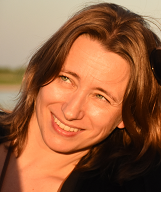 Olga Petryniak is the Senior Director of Global Resilience and Food Security with Mercy Corps, working across the organization, with peer agencies and donors, to advance evidence, influence, and impact in resilience across humanitarian and development contexts. With16 years of experience in international development, Ms. Petryniak previously oversaw the $60 million South and Southeast Asia resilience portfolio for Mercy Corps and led complex, USAID-funded programs for Mercy Corps, CARE, and Pact in Ethiopia.
Olga Petryniak is the Senior Director of Global Resilience and Food Security with Mercy Corps, working across the organization, with peer agencies and donors, to advance evidence, influence, and impact in resilience across humanitarian and development contexts. With16 years of experience in international development, Ms. Petryniak previously oversaw the $60 million South and Southeast Asia resilience portfolio for Mercy Corps and led complex, USAID-funded programs for Mercy Corps, CARE, and Pact in Ethiopia.
 Jim Arbogast is the senior Director for Crisis Analytics at Mercy Corps. He joined Mercy Corps in 2018 first as Regional Security Advisor for the Middle East. Prior to Mercy Corps, Jim worked for over 5 years at the International Criminal Court for the Office of the Prosecutor, and over 10 years for several humanitarian organizations such as Save the Children and Medecins du Monde in a variety of leadership roles. He has led complex operations in high-risk environments such as Darfur, DRC, Somalia, and the Sahel.
Jim Arbogast is the senior Director for Crisis Analytics at Mercy Corps. He joined Mercy Corps in 2018 first as Regional Security Advisor for the Middle East. Prior to Mercy Corps, Jim worked for over 5 years at the International Criminal Court for the Office of the Prosecutor, and over 10 years for several humanitarian organizations such as Save the Children and Medecins du Monde in a variety of leadership roles. He has led complex operations in high-risk environments such as Darfur, DRC, Somalia, and the Sahel.
 Onesphore Bangenza has worked with Mercy Corps DRC since 2012 in a variety of roles, including Emergency WASH Program Manager in displacement camps in North Kivu, Deputy Director and Infrastructure Manager for the IMAGINE program in Bukavu, Director of a LEVER Ebola Response Consortium in Beni and Butembo, and Program Director for the FARM program. He will soon step into the Area Project Manager role with the PDEC program within Ituri/Grand Nord Province. He previously worked with IRC in Burundi and CAR and Haiti.
Onesphore Bangenza has worked with Mercy Corps DRC since 2012 in a variety of roles, including Emergency WASH Program Manager in displacement camps in North Kivu, Deputy Director and Infrastructure Manager for the IMAGINE program in Bukavu, Director of a LEVER Ebola Response Consortium in Beni and Butembo, and Program Director for the FARM program. He will soon step into the Area Project Manager role with the PDEC program within Ituri/Grand Nord Province. He previously worked with IRC in Burundi and CAR and Haiti.
 Fagueye Sonko has spent more than 6 years in sub-saharan Africa where she has developed expertise working on conflict, displacement and other political and social realities. Currently managing Mercy Corps' Congo humanitarian analysis team, she ensures decision makers have access to timely information to support emergency interventions and resilience programming. Prior to Mercy Corps, Fagueye played a key role establishing dialogue with communities and armed actors for the United Nations peacekeeping mission in Central African Republic as part of the Joint mission analysis center (JMAC).
Fagueye Sonko has spent more than 6 years in sub-saharan Africa where she has developed expertise working on conflict, displacement and other political and social realities. Currently managing Mercy Corps' Congo humanitarian analysis team, she ensures decision makers have access to timely information to support emergency interventions and resilience programming. Prior to Mercy Corps, Fagueye played a key role establishing dialogue with communities and armed actors for the United Nations peacekeeping mission in Central African Republic as part of the Joint mission analysis center (JMAC).
Social Cohesion Lays the Foundation for Peace and Resilience
Dec 7, 2021 – 8:30 AM – 10:00 AM EST
View Presentation and Recording here
The second discussion in the series looks at short-term violence prevention paired with efforts to transform the structural drivers of conflict. It is based on the brief, Harnessing Local Sources of Social Cohesion in Niger, which examines factors that contribute to local-level variation in social cohesion in order to improve programming. Hypothesized to reduce violence, social cohesion is a necessary component for building resilience and improving long-term well-being outcomes in areas prone to ongoing conflicts, natural disasters, and other shocks and stresses.
Panelists
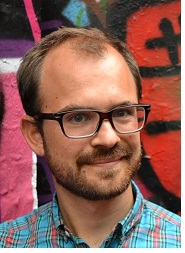
Dr. Ryan Sheely is Director of Research in Conflict and Governance at Mercy Corps. He holds a PhD in Political Science from Yale University. Dr. Sheely is an applied researcher with 15 years of experience designing and evaluating innovative governance and peacebuilding programming. At Mercy Corps, Dr. Sheely leads efforts to use rigorous research methods to evaluate programs focused on civic engagement, accountability, and building social cohesion. Since joining Mercy Corps in 2019, he has led over 15 research projects in collaboration with Mercy Corps program teams in a wide range of contexts, including Jordan, Syria, Nigeria, Niger, Afghanistan, Colombia, Myanmar, Ethiopia, and Kenya. Prior to joining Mercy Corps, Dr. Sheely spent 10 years on the faculty at Harvard’s Kennedy School of Government, where he taught Master’s and PhD-level courses on political economy and policy analysis.
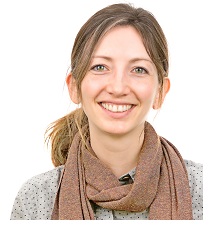 Lisa Inks is Director of Peace and Conflict in the Technical Support Unit for Mercy Corps, where she leads peacebuilding and violence prevention strategy, program design, and implementation support globally. Her publications include several evaluations of peacebuilding work and exploratory qualitative studies on participation in violence in Nigeria, Mali, Niger, Morocco, and Jordan. Prior to this role, she was the Director of Conflict Management Programs for Mercy Corps in Nigeria. In addition to working as Monitoring, Evaluation, and Learning Advisor for Mercy Corps in Nigeria, she has worked as Monitoring and Evaluation Officer at IREX, as Program Manager for Global Nomads Group, and as a researcher for Search for Common Ground and Mercy Corps in other capacities. She has a Master of Arts in Law and Diplomacy from the Fletcher School at Tufts University and a Bachelor of Arts from Indiana University.
Lisa Inks is Director of Peace and Conflict in the Technical Support Unit for Mercy Corps, where she leads peacebuilding and violence prevention strategy, program design, and implementation support globally. Her publications include several evaluations of peacebuilding work and exploratory qualitative studies on participation in violence in Nigeria, Mali, Niger, Morocco, and Jordan. Prior to this role, she was the Director of Conflict Management Programs for Mercy Corps in Nigeria. In addition to working as Monitoring, Evaluation, and Learning Advisor for Mercy Corps in Nigeria, she has worked as Monitoring and Evaluation Officer at IREX, as Program Manager for Global Nomads Group, and as a researcher for Search for Common Ground and Mercy Corps in other capacities. She has a Master of Arts in Law and Diplomacy from the Fletcher School at Tufts University and a Bachelor of Arts from Indiana University.
 Dr. Siaka Millogo is the Director of Programs for Mercy Corps Niger/Burkina Faso. Prior to joining Mercy Corps, Mr. Millogo was the Humanitarian Assistance Officer and the country representative of the Bureau for Humanitarian Assistance at USAID/Burkina Faso. Mr. Millogo Joined USAID/FFP in November 2011 and has led the FFP country team from 2013 to 2020- Prior to joining USAID, Mr. Millogo worked for the Catholic Relief Services (CRS) in multiple positions as Deputy head of the M&E Department, acting head of Programs and MEAL Coordinator for five (5) years. Mr. Millogo worked for the Ministry of Agriculture as the national Coordinator of food security and nutrition information, before which he worked for ten (10) years as the M&E Officer of a multi-sector, multi-partner, and multi-donor rural development program under the Ministry of Agriculture. Mr. Millogo holds a Master’s degree in statistics, another Master’s degree in training engineering and management, and a Doctorate in project management/monitoring and evaluation.
Dr. Siaka Millogo is the Director of Programs for Mercy Corps Niger/Burkina Faso. Prior to joining Mercy Corps, Mr. Millogo was the Humanitarian Assistance Officer and the country representative of the Bureau for Humanitarian Assistance at USAID/Burkina Faso. Mr. Millogo Joined USAID/FFP in November 2011 and has led the FFP country team from 2013 to 2020- Prior to joining USAID, Mr. Millogo worked for the Catholic Relief Services (CRS) in multiple positions as Deputy head of the M&E Department, acting head of Programs and MEAL Coordinator for five (5) years. Mr. Millogo worked for the Ministry of Agriculture as the national Coordinator of food security and nutrition information, before which he worked for ten (10) years as the M&E Officer of a multi-sector, multi-partner, and multi-donor rural development program under the Ministry of Agriculture. Mr. Millogo holds a Master’s degree in statistics, another Master’s degree in training engineering and management, and a Doctorate in project management/monitoring and evaluation.
Dr. Ifeoluwa Olawole is a quantitative research specialist for peace, conflict and governance with Mercy Corps' Research and Learning department. Previously, she worked at the World Bank, Creative Associates, and the University of Pennsylvania Linguistic Data Consortium. She earned a PhD in Political Science.
How Livelihoods Support is Bolstered by Social Sources of Resilience
Jan 20, 2022 – 8:30 AM – 10:00 AM EST
View Presentation and Recording here
The third discussion is based on the brief, Role of Markets in Strengthening Social Resilience Capacities in Northeast Nigeria, which documents how a combination of livelihood support and economic collectives like village savings and loan associations (VSLAs) can develop financial and social sources of resilience in crisis contexts. In protracted crises, where the state has limited capacity or lacks the political will to provide for and protect its citizens, people rely on markets and social connections for protection, information, and economic resources. Resilience capacities such as agency and confidence in the future are equally important. But how might aid interventions in protracted crises develop these important sources of resilience? Early evidence from two economic recovery interventions in Northeast (NE) Nigeria found that a combination of livelihood-support and economic collectives such as VSLAs helped develop financial and social sources of resilience through three pathways.
Panelists
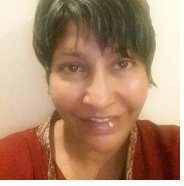 Vaidehi Krishnan (Vai) is a researcher with Mercy Corps' cash and markets portfolio. Previously she has managed programs in Asia, Africa, and the Middle East. She is the co-author of ‘The Wages of War’ in Syria and ‘The Currency of Connections’ in South Sudan. Most recently, Vai co-authored ‘A Million-Dinar Question’-- a cash research in Iraq that examines the impact of varying cash transfer values and financial health education on Iraqis’ economic and social wellbeing. Personally, Vai loves to ask the question “why” so the research role is simply a perfect fit.
Vaidehi Krishnan (Vai) is a researcher with Mercy Corps' cash and markets portfolio. Previously she has managed programs in Asia, Africa, and the Middle East. She is the co-author of ‘The Wages of War’ in Syria and ‘The Currency of Connections’ in South Sudan. Most recently, Vai co-authored ‘A Million-Dinar Question’-- a cash research in Iraq that examines the impact of varying cash transfer values and financial health education on Iraqis’ economic and social wellbeing. Personally, Vai loves to ask the question “why” so the research role is simply a perfect fit.
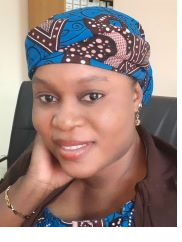 Jamila Mahdi is a social development expert with 9 years’ experience in humanitarian and development programs (CSO/International organization), with expertise in Market Systems Development. Her career includes experience in both field and program offices, project design implementation, Market Systems Development and Livelihoods and Partner management. She holds a Postgraduate diploma in Accounting and Finance, several certifications in Development Program management, Resilience and Market Systems Development, and Gender and Protection. Jamila has experience with partnership management through her work with the innovative Poultry Development for Resettlement program implemented by Mercy Corps Nigeria, and is a member of Association of Chartered Certified Accountants, and a member of Market Systems practitioners at Mercy Corps.
Jamila Mahdi is a social development expert with 9 years’ experience in humanitarian and development programs (CSO/International organization), with expertise in Market Systems Development. Her career includes experience in both field and program offices, project design implementation, Market Systems Development and Livelihoods and Partner management. She holds a Postgraduate diploma in Accounting and Finance, several certifications in Development Program management, Resilience and Market Systems Development, and Gender and Protection. Jamila has experience with partnership management through her work with the innovative Poultry Development for Resettlement program implemented by Mercy Corps Nigeria, and is a member of Association of Chartered Certified Accountants, and a member of Market Systems practitioners at Mercy Corps.
 Jeeyon Kim is the Senior Researcher for Resilience at Mercy Corps, where she leads research related to resilience in fragile contexts. Her recent research focuses on migration and linkages between resilience and women’s empowerment, social connectedness, and food security.
Jeeyon Kim is the Senior Researcher for Resilience at Mercy Corps, where she leads research related to resilience in fragile contexts. Her recent research focuses on migration and linkages between resilience and women’s empowerment, social connectedness, and food security.
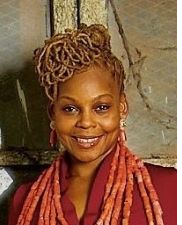 Jazmian D. Ohanyere is a Foreign Service Officer at USAID, where she provides agricultural development and food security technical guidance and support to U.S. government foreign assistance activities. She also works to design and manage cross-cutting initiatives to engage other elements of the US development assistance to accomplish broad programmatic goals. Jazmian has a BS in Animal and Poultry Science and a MS in Agricultural and Resource Economics from Tuskegee University.
Jazmian D. Ohanyere is a Foreign Service Officer at USAID, where she provides agricultural development and food security technical guidance and support to U.S. government foreign assistance activities. She also works to design and manage cross-cutting initiatives to engage other elements of the US development assistance to accomplish broad programmatic goals. Jazmian has a BS in Animal and Poultry Science and a MS in Agricultural and Resource Economics from Tuskegee University.
Photo Credit: Save the Children
This event series is made possible by the generous support and contribution of the American people through the United States Agency for International Development (USAID). The contents of the materials produced through the REAL Award do not necessarily reflect the views of USAID or the United States Government.